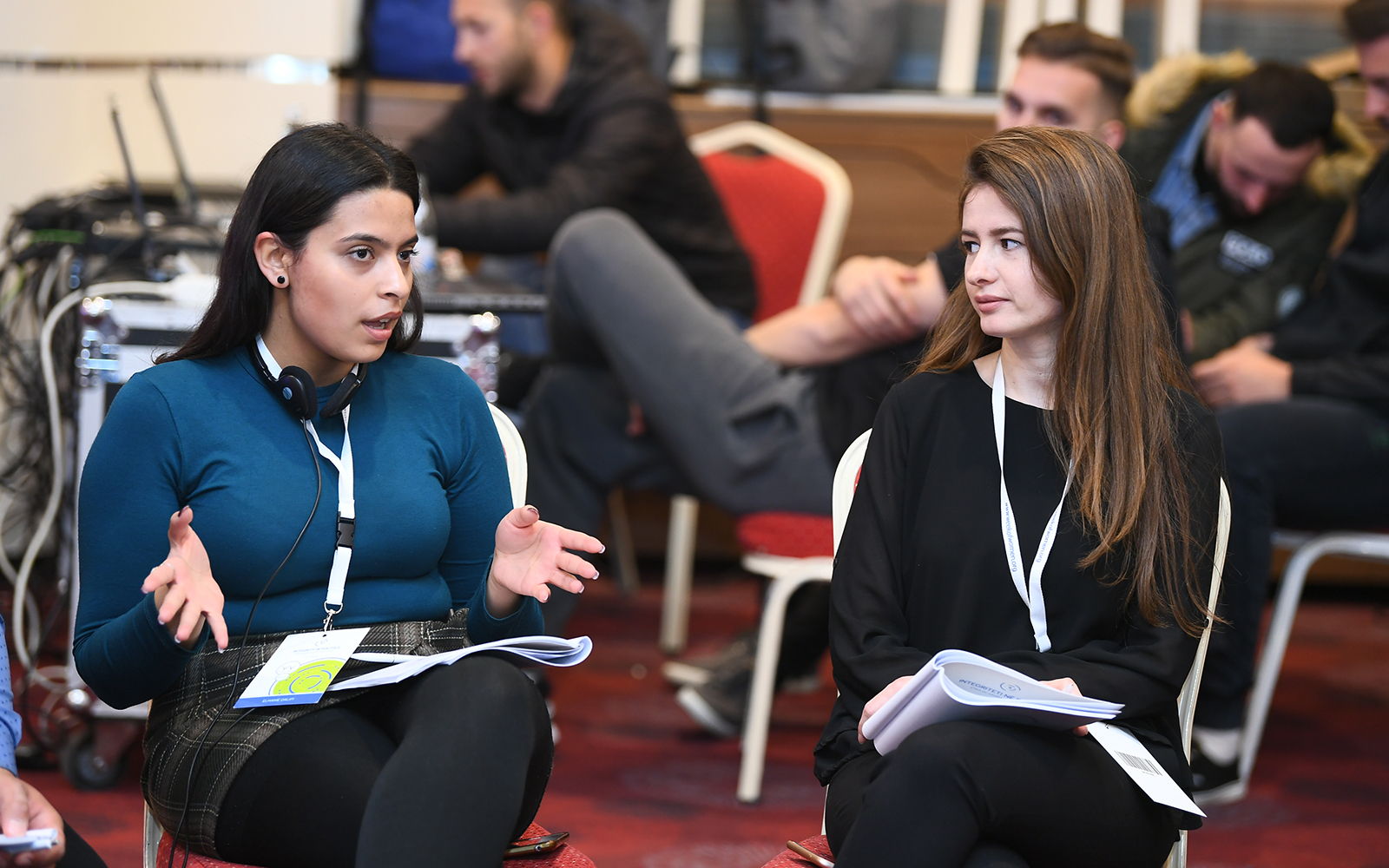
Week of Women participants discuss how to get more people engaged in politics at the local level.
SHARE
A democracy is only as strong as the voices of its women. Not only do women activists hold governments accountable to the needs of women, but the fight for gender equality also provides avenues for other marginalized groups to shape their country’s political system as well. In Kosovo, where conflict in the 1990s left communities divided along ethnic lines, with many cut off from government resources, women are taking the reins to make their government accountable to all citizens.
Week of Women 2019 is a very interesting event, as it brings together women from different segments of Kosovar society. It has diversity. It is very interesting with new people and new impressions.
- A female Kosovar Serb participant from Pristina/Pristine
“Women must be at every decision-making table in Kosovo,” said former President of Kosovo Atifete Jahjaga, speaking at NDI’s seventh annual Week of Women (WoW) in Pristina on March 28. “Only by incorporating the perspectives of women and minorities can we [...] have policies that are effective and comprehensive.”
Each year, Week of Women (WoW) brings together more than 100 up-and-coming political activists, the vast majority of them women, for a series of open discussions, skills-building sessions and networking events. The 125 participants in WoW 2019 came from 26 municipalities, 14 political parties and more than 30 civic organizations, government bodies and private sector companies. Nearly one-third came from Kosovo’s ethnic minority communities, including the Ashkali, Bosniak, Egyptian, Gorani, Serb and Turkish communities.
Over five days, WoW participants have unique opportunities to meet and ask questions to current leaders from government institutions, political parties, civil society, media and beyond. In turn, participants begin exercising their own leadership skills, advocating to current leaders about the issues that matter most to them and their communities, like education, healthcare and infrastructure.
When people hear the word integrity, they think of honesty. But there is also a second meaning: to be whole, to be complete. Kosovo is divided, because 50 percent of the population is held back politically, economically, and socially. There is a saying [for this]: ‘If you don’t have a seat at the table, you are probably on the menu.’
- U.S. Ambassador to Kosovo Philip S. Kosnett
This year’s WoW focused on the integrity of political processes at the local level, as participants brainstormed how to create grassroots change in their communities. In a series of open discussions, WoW participants queried mayors from around the country on issues that affect women, from inclusion in local councils to aiding survivors of domestic violence. Through this dialogue, participants have learned more about local budgeting, procurement and hiring practices and have proposed ways to make those practices more transparent, effective and inclusive of women and other marginalized groups.
Speaker of the Kosovo Assembly Kadri Veseli, who delivered a keynote address on restoring trust in democratic institutions, also called on political party activists to ensure greater representation of women in their parties’ leadership, including at the local level. “[We must] take into account not just women’s representation in one institution during one week,” he said, “but in all institutions at all times.”
It’s an honor that I get to listen to discussions with many young women and men. We must all rise to the challenge of being there for women. It will be great for us to work together with institutions to make representation of women part of the discourse.
- A male Kosovar Albanian participant from Suhareke/Suva Reka
WoW began in 2012, after political assessments revealed that very few women in Kosovo were able to access political parties or engage in the country’s broader political process. Over the years, NDI has seen support for women in politics grow, and many WoW alumnae have shared success stories from the political initiatives--and the careers--they have gone on to pursue.
WoW 2017 alumna Donika Dobruna shared her experience as a judge at the Basic Court of Pristina and what she has learned about promoting transparency and integrity in local courts. “Justice must not just be done,” she told participants. “It must be seen as it is being done. Not even court decisions should be eliminated from public scrutiny.”
NDI’s Week of Women has been made possible since its inception by funding from the United States Agency for International Development (USAID). The embassies of Canada and the Netherlands, as well as AAB College, also contributed to this year's event. Week of Women also received the support of the Office of the Prime Minister, the Office of the President of the Kosovo Assembly, the Assembly Women’s Caucus, and the Municipality of Pristina.


